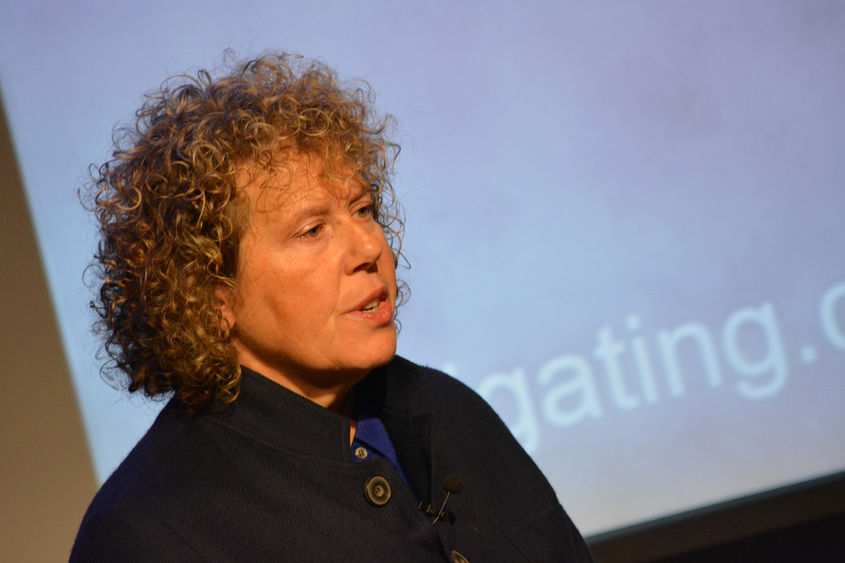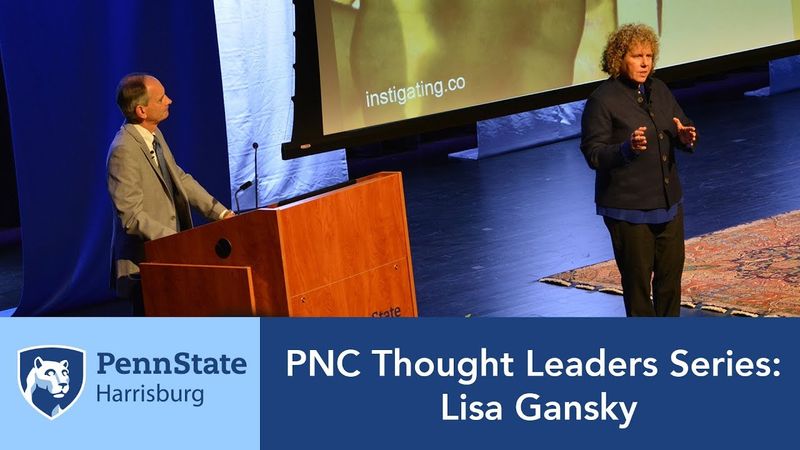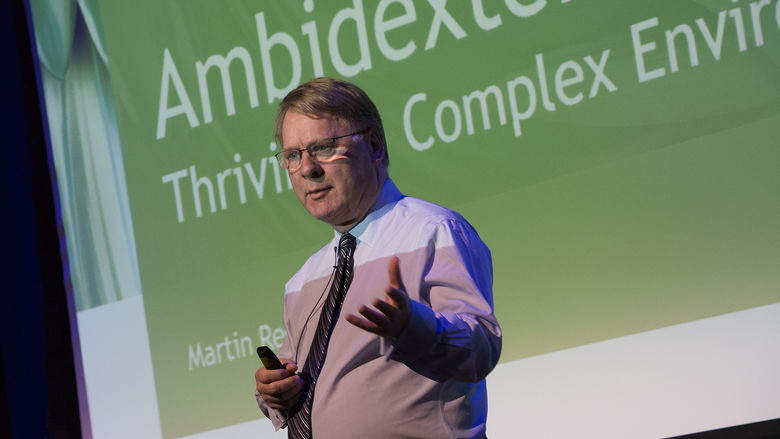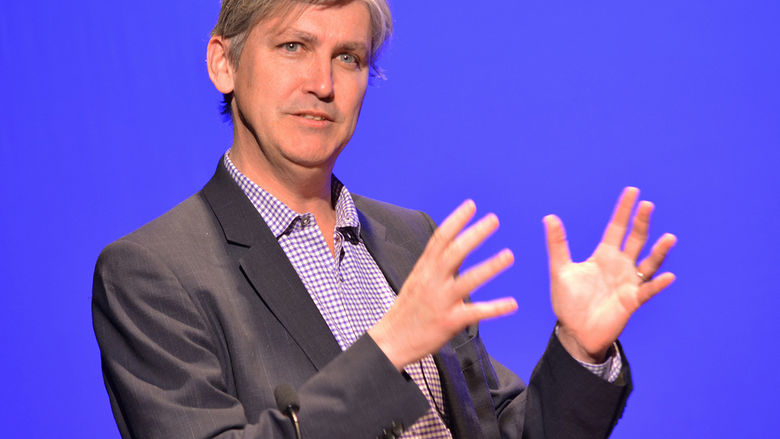
Lisa Gansky, entrepreneur and bestselling author, presented “The Mesh: Why the Future of Business Is Sharing” as part of the PNC Thought Leaders Lecture Series.
MIDDLETOWN, Pa. — Penn State Harrisburg recently welcomed entrepreneur and bestselling author Lisa Gansky to campus as part of the PNC Thought Leaders Lecture Series, where she presented “The Mesh: Why the Future of Business Is Sharing.”
Gansky is known as a “pathological instigator,” who strives to reject the idea of the average business model in favor of something more unlikely and innovative. She is an author, investor, entrepreneur, and a renowned expert on innovation and business strategy. Her interest lies in creating and testing new business models and partnerships that can inspire creativity and liveliness in local economies and cities.
The Thought Leaders Series is a forum to spur economic development in Pennsylvania by creating a place where innovative thinking can be converted into economic impact, intellectual property, entrepreneurship and corporate best practices. It invites high-profile speakers from around the world to discuss topics that have a significant impact on the local region.
“We are beginning a conversation together, and the together part is very important when we think about the future,” Gansky said at the beginning of her talk, which focused on the rise of service and commodity sharing with companies such as Air BnB, Uber and Lyft. “Sharing isn’t new. … Sharing is fundamental to how we live. In fact, sharing is all around us. … We share many things, like infrastructure. … Cities are platforms for sharing — a small geographic area, tightly populated. … We share also a cultural history, great know-how that has been passed down through generations.”
On moving from the 20th century to the 21st century business model:
“The 20th century … the century of generals. … It’s top down, one to many, you’re a cog in the wheel. We applied the military model to how we organize our companies, how we think about strategies, how we learn, how we educate. … We applied it to government … how we designed our cities. … The military model has influenced the last century and it has shaped the way we see the world, in ways that we don’t see because we forgot we put the glasses on.
“The 21st century has a really different rhythm, different challenges, different opportunities, different tools and different capabilities. … We’re moving into this place where everything is connected and we’re connected to many things. … We can’t help but be connected. All of us with our little devices, we are empowered, we are engaged.”
On the collaborative possibilities for central Pennsylvania:
“I bet most of you in this room don’t know each other, and the real value in being in a community and being connected is actually being connected.
“The way that this community [sentral Pennsylvania] is organized is actually quite beneficial. The whole orientation is a way from being super centralized and more towards distributed communities and ideas. What’s missing is the networking. That’s why I think this relationship between the University and PNC has been a great start to these conversations, and could be an opportunity to incite or nurture little projects, create a bit of an incubator.
“The challenges we have in the future and the opportunities aren’t held inside nice little organized communities, but happen at the fringes, and the ability for us to come together and think together, sharing resources and ideas, and understanding. … You have talent in different areas of your communities, and companies, and families.”


